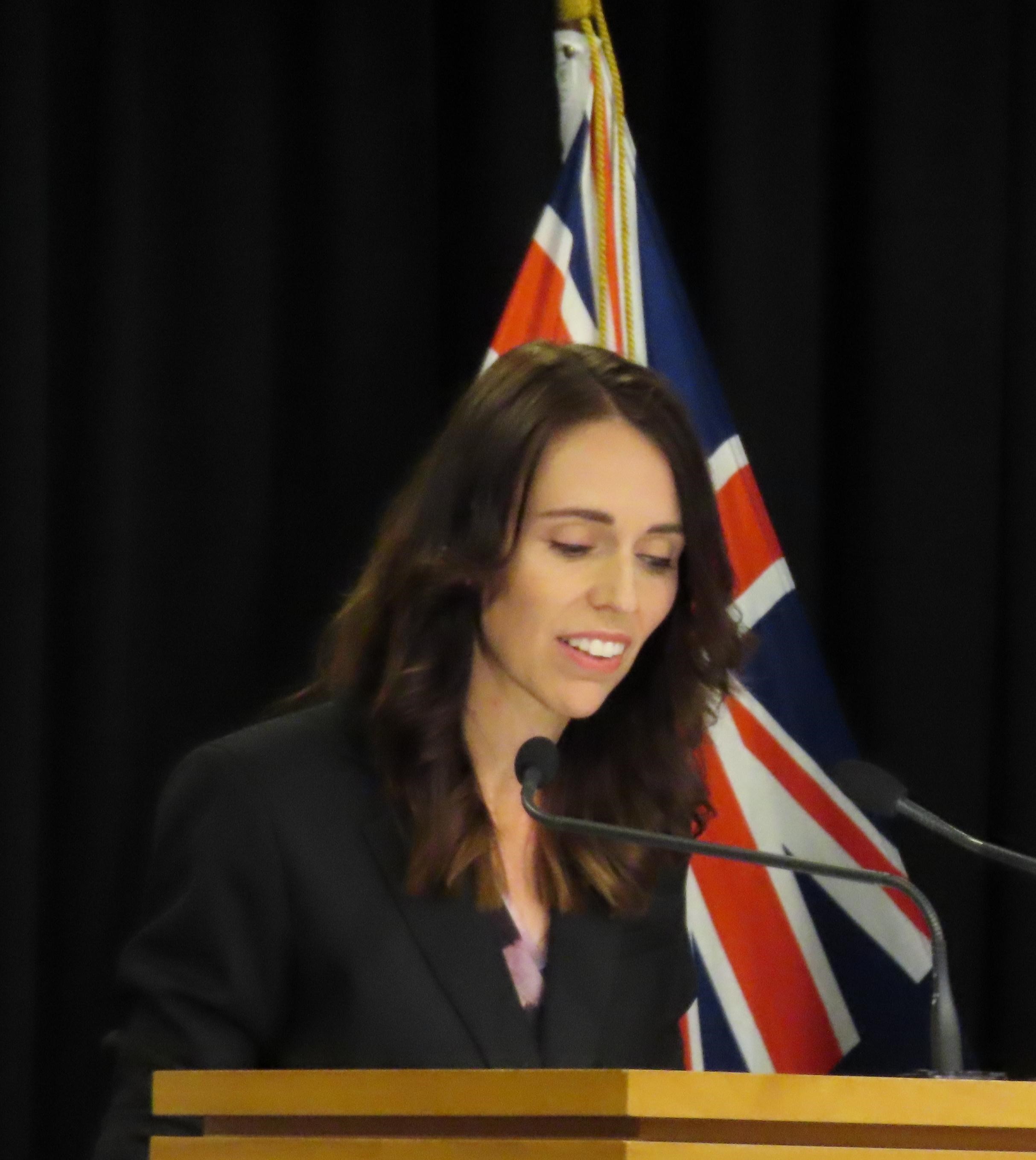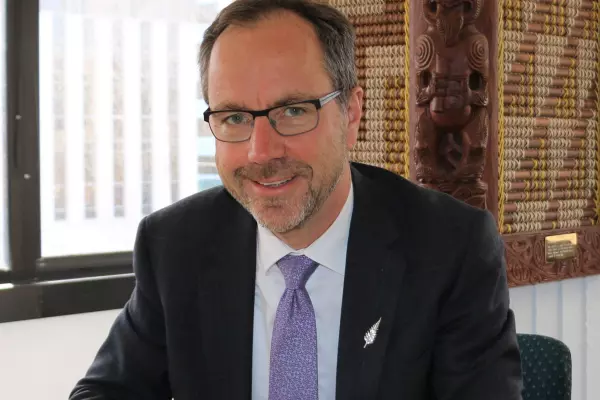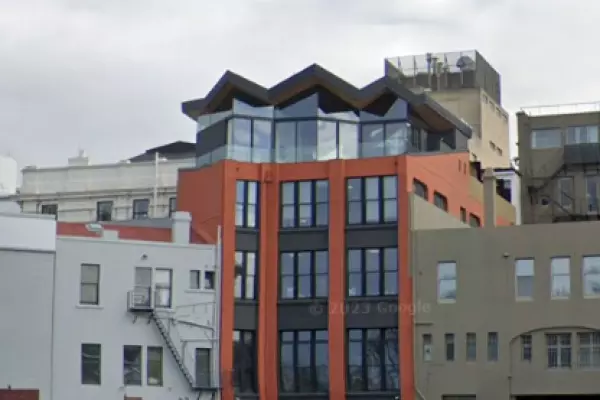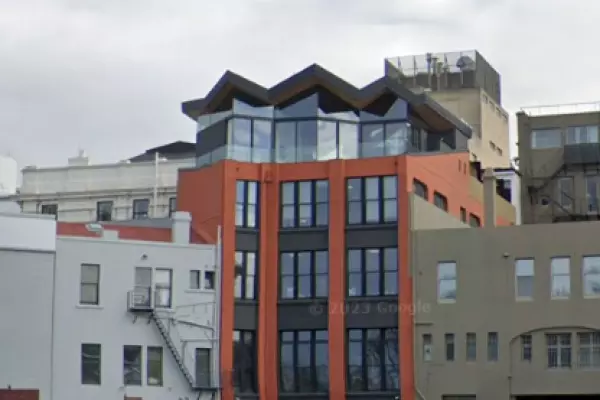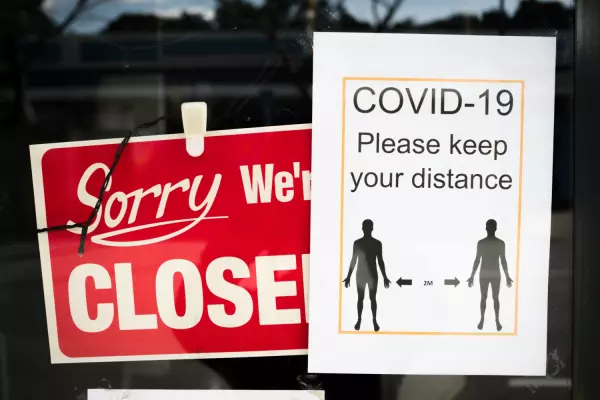Prime Minister Jacinda Ardern turned enforcer this afternoon when she was told a central Wellington cafe was open and serving people seated closely together, in contravention of the rules allowing ‘essential services’ to operate during the lockdown.
“What was the name of the cafe? I’ll grab a name afterwards. The Medical Officer of Health should be making a visit,” she said. Even at Alert Level 3, where the country is today and until midnight Wednesday's more complete national lockdown, “no bars, no restaurants. We should be in shutdown now for those services,” Ardern said.
Her comments came as Ministry of Business Innovation & Employment officials continue to finesse the definition of essential businesses and health officials widen the explanation of what kinds of outdoor activities people should regard as acceptable during the four-week lockdown that starts tomorrow night.
Takeaway shops seem to be a particular problem area, with the Unite Union today potting Domino’s pizza for announcing they will remain open, according to spokesman Gerard Hehir.
Publicity stunt
Domino’s “even turned the announcement into a publicity stunt, offering free pizza to the elderly. We are hearing reports that Hell Pizzas intend to continue operating and staff told they must show up to work," he said. “There will be marginal calls as to what is 'essential'. This is not one of them."
Ardern also seemed unconvinced about the claim today by office stationery supplier OfficeMax that it had been deemed an essential service and would keep supplying customers through online sales, even though its stores would be shut.
“As aspects of our supply chain are considered by government to be necessary to support New Zealand’s essential services we will remain open with limited changes to the way that we will be supporting you,” managing director Kevin Obern said in an email to customers. “Our focus remains unchanged, to support essential services, businesses, educators and students to continue operating or to work/study from home.”
However, just as a senior MBIE official, Paul Stocks, had earlier in the day made clear that no one in the government had deemed The Warehouse an essential service, Ardern stressed that “an essential service is something that is required to ensure that people can maintain their own health and wellbeing and get food and the necessities of life, that we maintain our response to covid-19 and that we maintain public health and safety.”
“There will be a number of examples that will not in my mind fall within those circumstances.”
Red Sheds
MBIE was working through the finer details with firms, “including those that consider themselves contactless”, she said. “But don’t expect, for instance, to be allowed to go to the local Warehouse.”
The NZX-listed retailer went into a trading halt this afternoon and said it was "in discussions with government on what categories within The Warehouse will be available post escalation to covid-19 Alert Level 4.”
Ardern indicated that, in some circumstances, food stores other than supermarkets may be able to remain open.
“I come back to the simple principles of essential services, making sure people have access to food. If they don’t have a supermarket, making sure that there is some food provision through a local superette. We’ll make sure that there’s that level of flexibility.”
Helpline
The government has a set up an advice line for businesses who are unsure. The number is 0800 779 997 and the phone line is available from 8am to 1am, seven days a week.
Clarifications published on the government’s covid-19 website today included that, as well as builders of essential services or critical infrastructure, those who were involved in resource consenting such projects are also be included. For example, Steel & Tube said today it would close all sites except where it was needed to supply essential businesses.
The government has said that courts are essential services, although chief justice Helen Winkelmann has decided they will only operate in priority areas.
The NZ Law Society is currently seeking clarification over whether lawyers who are needed for probate and property transactions could be deemed essential services.
In the education sector, the government has clarified that as well as teachers and childcare staff, those employed by or contracted to an education facility can operate, as well as those who supplied educational facilities or material, such as printers.
In the health sector, the expanded list includes Pharmac, the New Zealand Blood Service, the Health Promotion Agency, and the Health Quality and Safety Commission. It also includes social workers, aged care and community workers, and caregivers.
FMCG
Those eligible as producers of essential fast-moving consumer goods are defined on the website as:
“Any entity involved in the supply, delivery, distribution and sale of food, beverage and other key consumer goods essential for maintaining the wellbeing of people, but not takeaway shops.”
The Baking Industry Association of New Zealand said the Ministry of Health had confirmed bakeries were an essential service. Association president Kevin Gilbert said bakeries would relieve pressure on the supermarkets.
In the financial services sector the definition includes banks and other financial institutions, “including any entity that contracts or provides services to them,” including secure money services.
The NZ Banker’s Association said most bank branches will be closed, although some would be open for limited hours, one day a week to meet the needs of customers.
The Financial Markets Authority said that financial advice wasn’t covered by the government’s definition of offices that need to remain open, but its expectation was that advisers should be able to work from home and provide support to clients.
Supply chains
Suppliers to local and central government agencies involved in the covid-19 response, enforcement, planning and logistics or that have civil defence/emergency management functions were also deemed essential.
In primary industries, the government has specified that support services such as food safety and verification, lab services and biosecurity functions were essential services.
Comvita said in an NZX update that it was classed as an essential business. A spokeswoman clarified that the call was the government’s decision because it is a primary sector product which supplies the food chain.
For transport and logistics, the government has advised that any entity contracted to the Ministry of Transport, New Zealand Customs, New Zealand Transport Agency, Civil Aviation Authority (including Aviation Security Service), Maritime New Zealand (including the Rescue Coordination Centre), Airways NZ, MetService, KiwiRail (including Interislander), can stay open. Napier Port told the NZX earlier today it is an essential service.
The government also added that entities providing services to keep vehicles operational for work purposes such as testing, mechanics and tyre services could stay open. NZX-listed Eroad said it had government designation as an essential service.
NZTA said in a statement that capital works on state highway projects aren’t essential services and had told contractors to shut down.
Utilities
The government has also added that supply chains to utilities and communications firms could be included, including cleaning, security services, maintenance and repairs.
The official advice is that the above can continue working, but should put in place alternative ways of working to keep employees safe, including shift-based working, staggered meal breaks, flexible leave arrangements and physical distancing.
The Real Estate Institute Of New Zealand has issued guidance for its members. That advice is that real estate isn’t an essential service. Its view is that open homes must be canned and people can’t shift homes.
The organisation said online virtual tours of homes and online auctions could take place, as could pre-settlement inspections. Property managers could also undertake their duties virtually if agreed by tenants and landlords.
Earlier today, Justice Minister Andrew Little tweeted: “If you’re looking for the loophole then you’re missing the point. We’re sharing this extraordinary challenge to save lives.”
